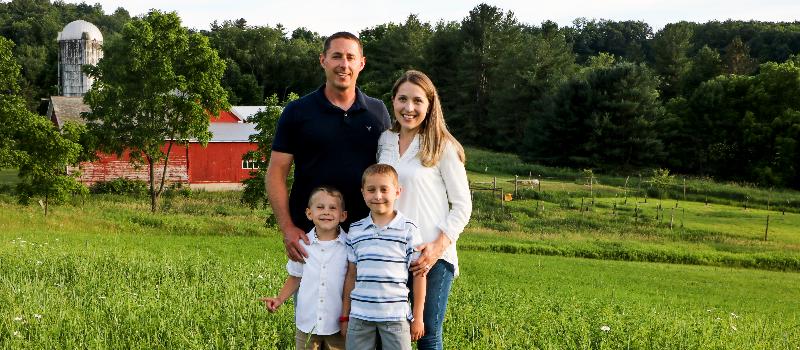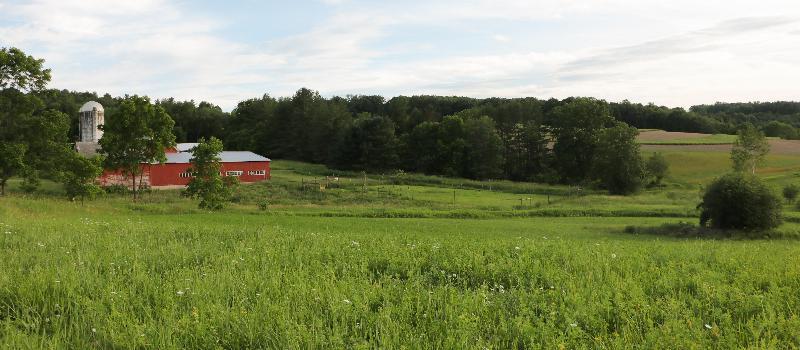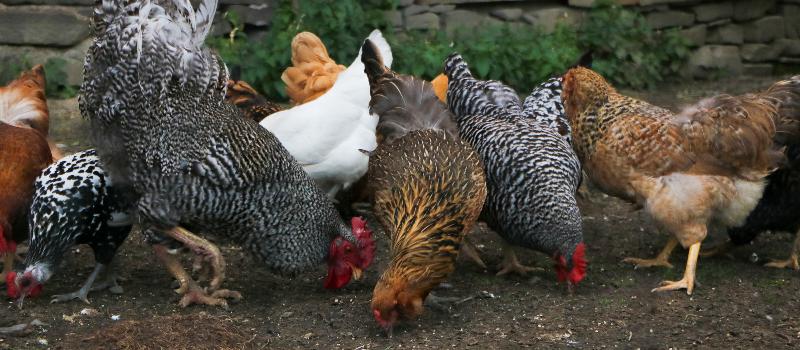Preserving a Quality of Life
One family's approach to supporting agriculture now and in the future
HAVING GROWN UP as part of a farm family, Nathan Luskin has a deep appreciation for the land around him. As a child, he spent countless hours on his grandfather’s dairy farm riding tractors, baling and storing hay, playing in the woods and creeks, and learning the seasons of agriculture and the natural world.
Fast forward to adulthood, Nathan, who now works as a physical education teacher, and his wife Meghan, a speech pathologist, were able to maintain that proximity and appreciation for the agricultural lifestyle when they purchased their first home adjacent to the family farm.
But when the farm sold, they realized they might need to look elsewhere to provide their family the experiences and quality of life they valued.
So, when a nearby 145-acre farm hit the market, they couldn’t help but consider it.
A working farm since the 1800s, the property had seen its share of cattle, sheep, pigs and field crops of corn, rye, oats, potatoes, buckwheat and hay. However, in the past few decades it was leased as support land to the neighboring Lew Cliff Farm. In addition to growing hay and corn for their 135-Holstein dairy operation, Lew Cliff also leased barns and other outbuildings for silage and to store machinery.
“Beyond the natural beauty of the property,” says Nathan, “the proximity to our family made it very appealing.” But, as Meghan notes, “There was a lot to consider in making the purchase. It wasn’t just about what would happen to the property today, but what would happen in the future.”
As they pondered the purchase, the Luskins consulted with family friend and ASA supporter Timmy Wiley, as well as Matt and Peggy Cannon of Cannon Cattle Ranch which abuts the property under consideration. Both Wiley and the Cannons, who conserved their 391-acre property in 2011, shared how an easement could benefit the Luskins financially but more importantly, how it would guarantee the land would be there to be worked and farmed in the future.
“Those conversations, along with encouragement from our parents, were key to helping us make our purchase decision,” says Meghan, “as was working with ASA who fielded all our questions —and we had a LOT of questions. Ultimately, it was clear a conservation easement would help ease the financial burden while ensuring the land would both be ours and remain forever farmland.”
Today, the Luskins maintain the working relationship with Lew Cliff Farm and enjoy watching their two boys marvel at the farm machinery working the fields. “It’s a joy to watch them immerse themselves in the natural world and learn all that goes into farming,” says Nathan. “We’re incredibly grateful that ASA is willing to work with individuals who don’t farm but are as committed to supporting farmers and conserving the land that sustains us all.”





